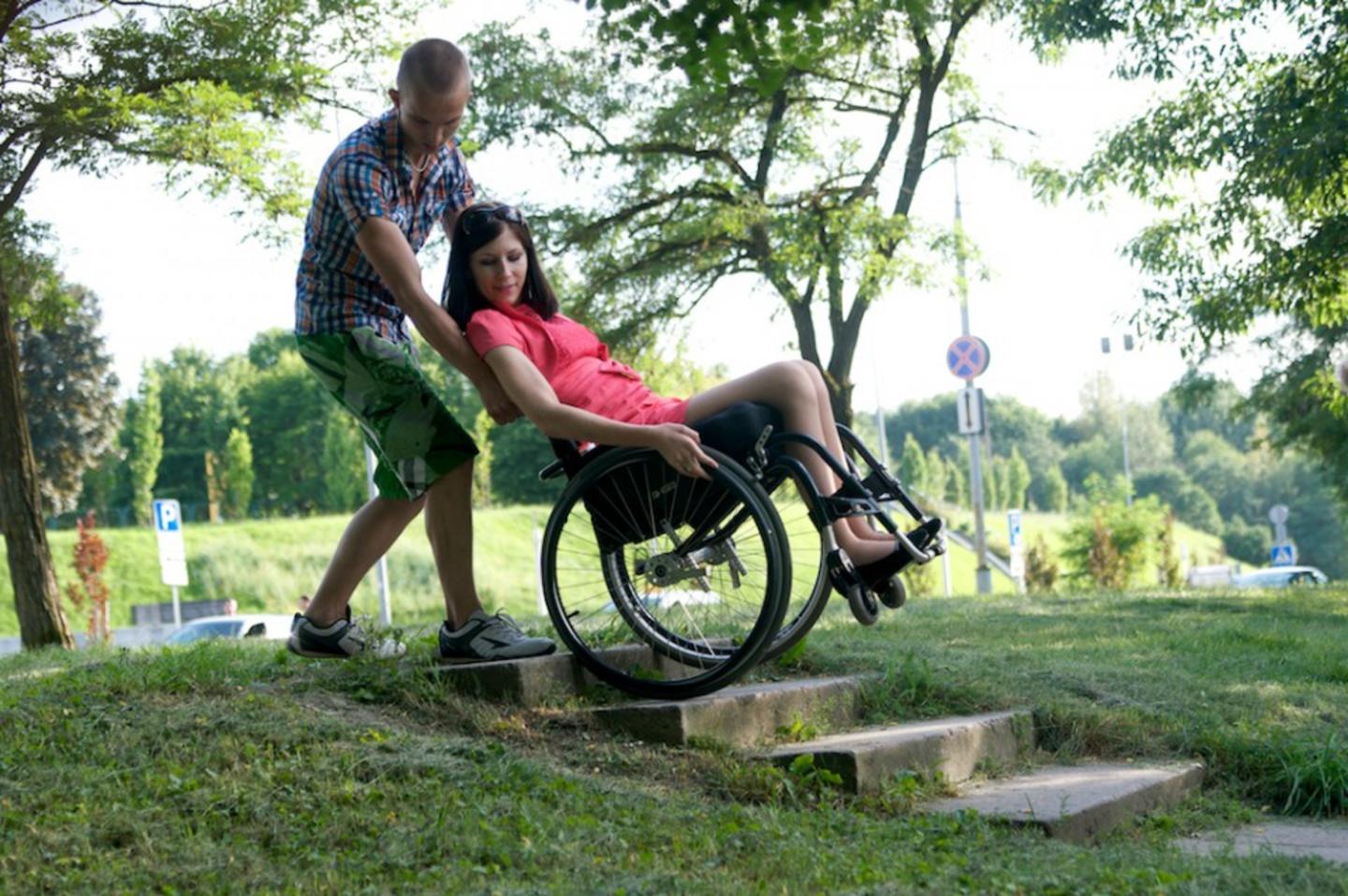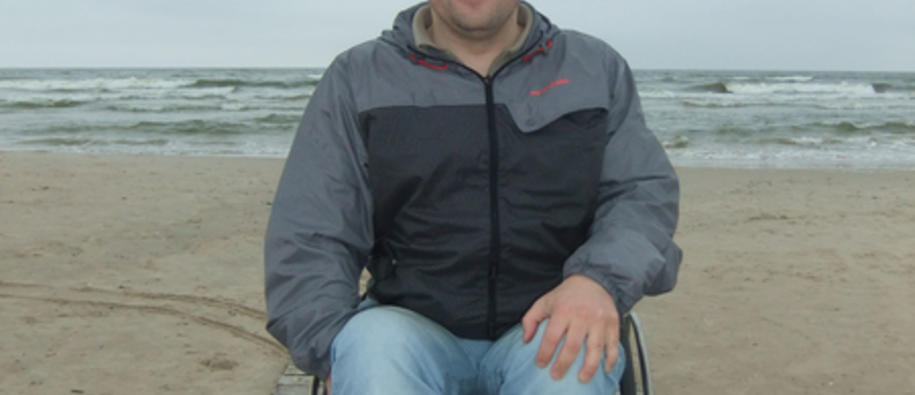Five years ago, Audrius broke his neck in a diving accident and is now in a wheelchair. He cannot feel his legs, but after two years of intensive training and physiotherapy, he has got 80% functionality back in his upper body. Today Audrius drives a car and takes care of himself and his daughter. It was when he was hospitalised that he got in contact with Lithuanian Union of Persons with Disabilities:
“I was looking for more information and then I got in contact with Rasa Kavaliauskaitė, the President of the Lithuanian Union of Persons with Disabilities. She was wondering about my future prospects. Now I work for them,” Audrius explains.
The project Adrius is working on is called ‘Without Thresholds’. The project aims to reintegrate persons with reduced mobility by making it easier for them to get information on the accessibility of public buildings and other important places. As part of the project, three persons from the Lithuanian Union of Persons with Disabilities check out different sites – such as schools, hospitals and other public buildings - in the districts of Vilnius, Šiauliai and Kaunas to assess their accessibility. Adrius, who checks sites in the district of Kaunas, is generally happy with how they are being received:
“We always call them in advance and book a date. Then, when we arrive to see how the site is adapted to people with disabilities, like for example the entrance, elevators and handicap toilets, we normally get a very positive reception. It is not the lack of will that is the problem, rather the lack of knowledge and financial resources.”
Providing information
The information collected from these visits is published on the website www.beslenksciu.lt, which also provides an online map and guidelines on adapting public spaces to the disabled. This has also proved useful for architects, designers and other professionals when they are creating an environment adapted to the needs of disabled people. The website has its own administrator and is being updated frequently
“This is a very valuable online tool which is directly benefiting a large number of people with disabilities. We are currently also working to make the website accessible in English so that also visitors from abroad can make use of it,” Adrius says.
The Lithuanian Union of Persons with Disabilities is also monitoring legislation and campaign actively for the rights of disabled people. An education programme, ‘Discover Disability’, and a training programme, ‘Serving clients with disabilities’, are in the making. The target groups are both the private and public sector.
About the project
The project receives €76 548 from Iceland, Liechtenstein and Norway through the NGO fund in Lithuania.
The project started October 2013 and will end March 2015.

